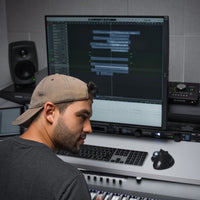Home Studio of a HBO Composer in NYC, US
Episode 003: Juan Dussán
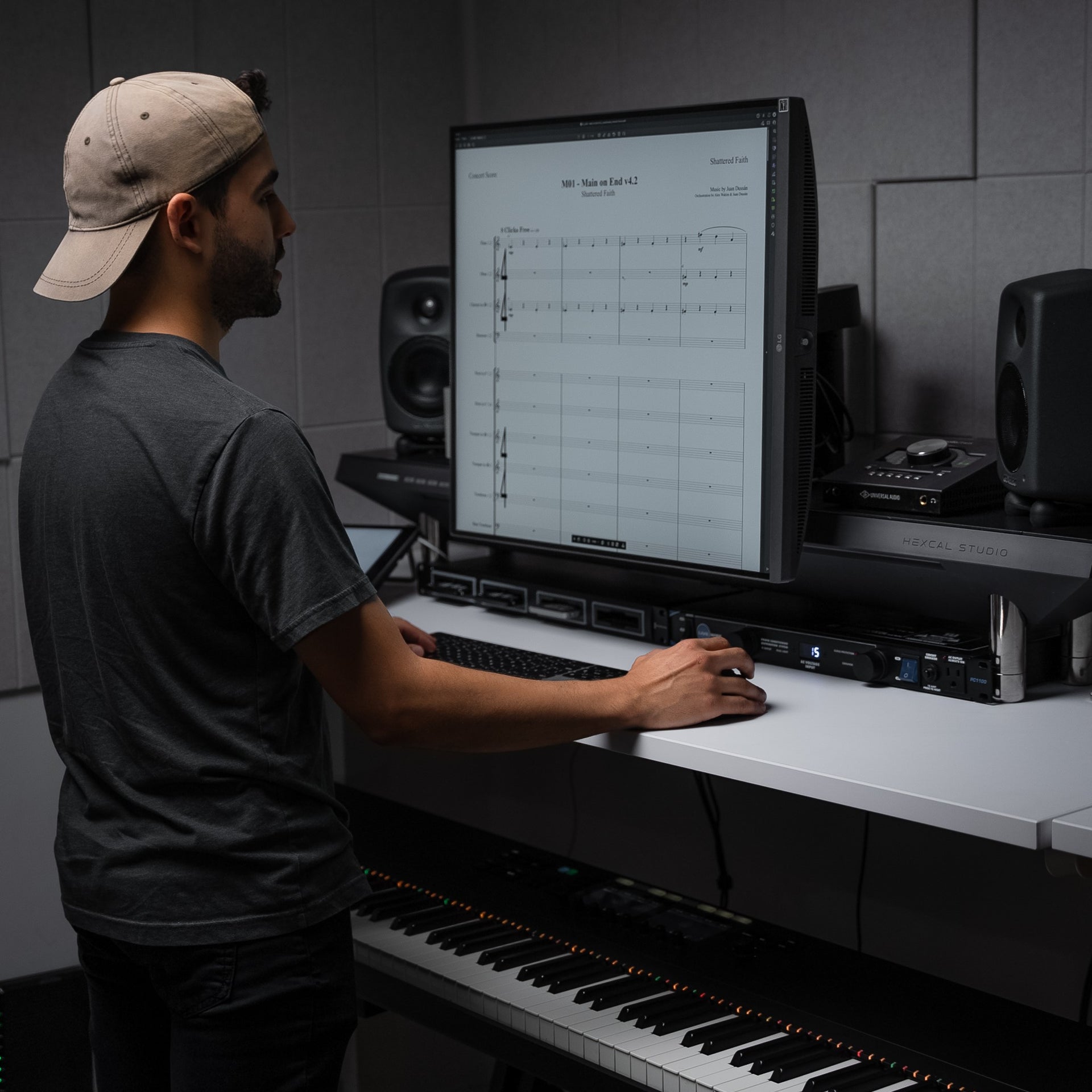
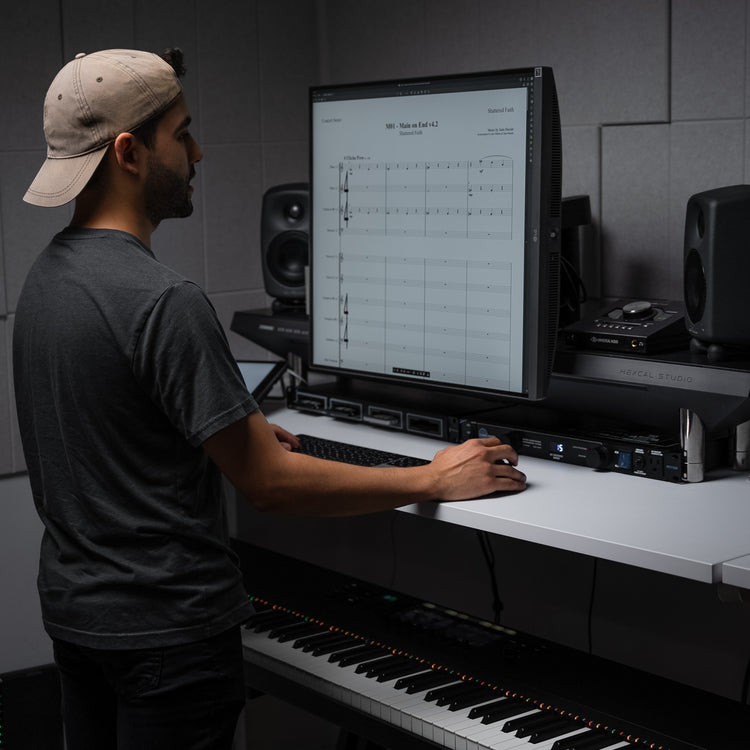
| Product List | |
|---|---|
| Desk | Uplift 60 x 24 motorized standing desk (white) |
| Chair | IKEA white desk chair |
| Desk Shelf | Hexcal Studio |
| PC | Mac Studio M2 Ultra, 128Gb of ram |
| Laptop | MacBook Pro 2018, 32Gb of ram |
| External Storage | BlackMagic Thunderbolt Multidock |
| Tablet | iPad Pro 1st gen |
| Monitor | LG DualUp 28 inch |
| Speaker | Genelec 8020D’s |
| Headphone | Sony MDR57 |
| Keyboard | Apple Magic Keyboard |
| Mouse | Logitech M57 |
| Web Camera | Mevo 4K |
| Microphone | Deity Podcast Mic |
| Smartphone | iPhone 12 Pro Max |
| Camera | Sony A7s iii |
| MIDI Keyboard | Komplete Kontrol 88 Mk2 |
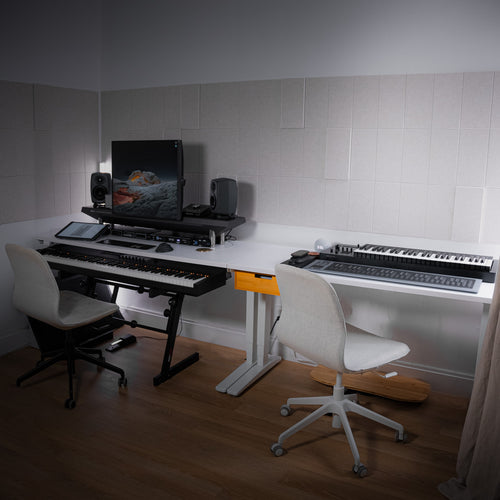
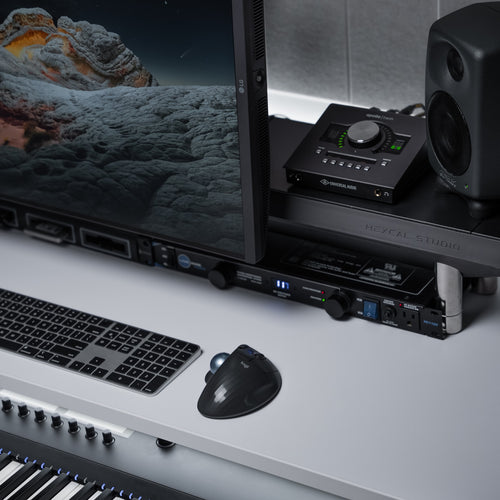
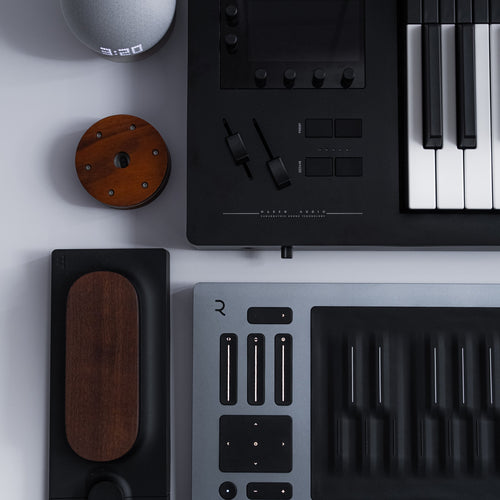
Tell us a bit about yourself
I am from Colombia originally, where I grew up and studied classical piano performance in a conservatory and then a university. I had the opportunity to move to NYC to pursue a master’s in film scoring, and ever since then I’ve been on a path that has brought me incredible satisfaction and success. My love for photography and social media content creation led me to start helping other composers in the industry showcase their work online.
What’s your favourite item on your desk?
It’s a hard question. It has to be either my monitor, for it’s comfortable and expansive view, my speakers for the way they represent the music I make, or my midi controller, for literally saving me hours of work time.
What books, blogs, or podcasts recently caught your attention?
I like the win without pitching manifesto by Blair Eins. It’s a phenomenal short read about how you position yourself as a highly specialized creative. It also explores groundbreaking ideas on pitching, pricing, and finding work in a competitive creative field.
Any tips for other makers who want to improve their workspaces?
Don’t blow your budget on a bunch of software or outboard gear all at once. A good setup takes time to build with the right tools. I would start with the basic needs, for me when I started it was a computer, midi controller, and speakers. The rest started coming as my work improved.
What does your typical day look like?
Every day is a little bit different depending on what I’m working on. If I’m actively scoring a film or media project, I’d usually do some emails in the morning. I start writing towards the afternoon and sometimes at night— usually my most creative hours. When I have a content creation day, I would spend the entire day shooting and batching content, and another day editing. What I do in my day is often separated by walks in Central Park.

